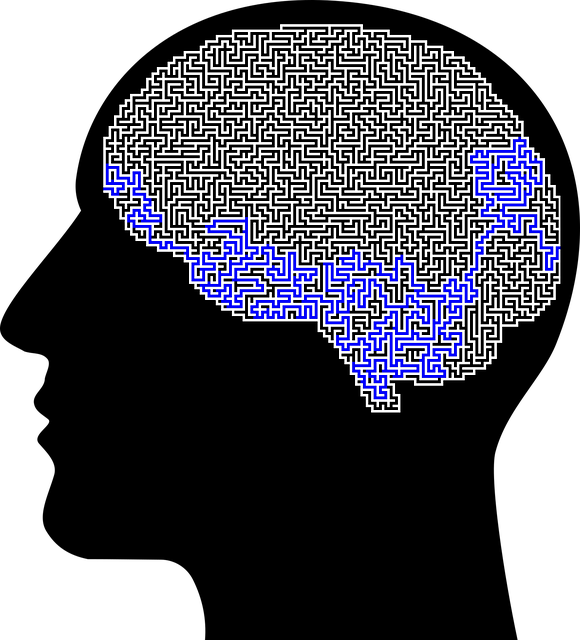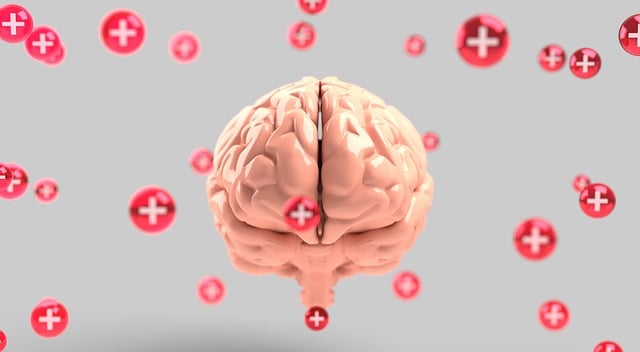Lafayette Developmental Disability Therapy offers a comprehensive crisis intervention program that goes beyond immediate response, focusing on long-term mental wellness for individuals with developmental disabilities. Their approach includes empowering clients with coping mechanisms, enhancing problem-solving skills, and encouraging self-regulation through tailored strategies such as risk management planning, de-escalation techniques, social skills training, and educational programs. By identifying triggers and early warning signs, Lafayette prioritizes de-escalation methods to manage high-stress situations effectively. Post-crisis support ensures personalized interventions for emotional healing and resilience building, integrating Risk Management Planning and Emotional Well-being Promotion Techniques. This holistic support system fosters adaptability and long-term recovery, enhancing overall mental wellness.
In moments of crisis, individuals with developmental disabilities require specialized support. This article guides therapists and caregivers through effective crisis intervention strategies, tailored specifically for those in Lafayette Developmental Disability Therapy. We explore essential components like understanding crisis intervention, early identification of triggers, evidence-based de-escalation techniques, and post-crisis recovery planning. By mastering these strategies, professionals can foster safe, supportive environments, enhancing the well-being of those they serve.
- Understanding Crisis Intervention in Developmental Disability Therapy
- The Role of Lafayette Therapy in Crisis Management
- Identifying Triggers and Early Warning Signs
- Evidence-Based Strategies for De-escalation
- Post-Crisis Support and Recovery Planning
Understanding Crisis Intervention in Developmental Disability Therapy

Crisis intervention is a critical aspect of developmental disability therapy, focusing on providing immediate support and strategies to help individuals manage severe emotional or behavioral crises. In Lafayette Developmental Disability Therapy, understanding this process involves recognizing that it’s not just about responding to acute incidents but also preventing future ones. Crisis intervention aims to empower clients with coping mechanisms, enhance their problem-solving skills, and promote self-regulation.
For mental health professionals, effective crisis intervention requires a tailored approach. This includes integrating strategies from risk management planning for mental health professionals, such as de-escalation techniques, while incorporating relevant educational programs design to address specific needs. Social skills training, for instance, can play a significant role in equipping individuals with the ability to communicate their feelings and needs during stressful situations. Through these comprehensive methods, Lafayette Developmental Disability Therapy strives to offer holistic support that fosters resilience and long-term mental well-being.
The Role of Lafayette Therapy in Crisis Management

In crisis management, Lafayette Developmental Disability Therapy plays a pivotal role by offering specialized support tailored to individuals with developmental disabilities. This approach recognizes the unique challenges these individuals face during crises, ensuring their needs are addressed with sensitivity and expertise. The therapists employ evidence-based strategies that consider the individual’s history, preferences, and cultural background, fostering an environment of safety and trust.
Integrating Lafayette therapy into crisis intervention enhances the overall effectiveness of support systems. By focusing on emotional regulation, communication skills, and problem-solving techniques, these therapists empower individuals to navigate challenging situations with resilience. Moreover, they collaborate closely with other healthcare providers, advocating for cultural competency training among staff. This holistic approach ensures that everyone involved in crisis management understands and respects diverse cultural perspectives, thereby improving outcomes through effective conflict resolution techniques and Mental Health Policy Analysis and Advocacy.
Identifying Triggers and Early Warning Signs

Identifying Triggers and Early Warning Signs is a crucial step in crisis intervention strategies, as it allows for timely support and prevention. At Lafayette Developmental Disability Therapy, we recognize that individuals with developmental disabilities may face unique challenges that impact their mental wellness and emotional well-being. By being attuned to subtle changes in behavior or patterns, caregivers, family members, and therapists can effectively navigate crises before they escalate.
Early warning signs can vary greatly, from sudden withdrawal and increased irritability to changes in sleep patterns or appetite. These signals act as red flags, prompting a closer look at what might be triggering the distress. Through the application of Emotional Well-being Promotion Techniques, we guide individuals toward developing inner strength by teaching coping mechanisms tailored to their specific needs. By identifying triggers and implementing appropriate strategies, Lafayette Developmental Disability Therapy aims to empower those we support, enabling them to manage challenges more effectively and maintain a sense of stability.
Evidence-Based Strategies for De-escalation

In crisis intervention, de-escalation is a critical skill, and Lafayette Developmental Disability Therapy emphasizes evidence-based strategies to effectively manage high-stress situations. These methods are designed to promote calm and reduce anxiety in individuals with developmental disabilities who may struggle with emotional regulation. One such strategy involves active listening, where therapists encourage open communication and mirror the client’s language to foster a sense of understanding and trust.
Additionally, mental wellness coaching programs development often incorporates techniques like grounding exercises, helping clients focus on present sensations and distract from overwhelming emotions. Such practices have proven beneficial in preventing depression and enhancing overall mental wellness. By combining these evidence-based interventions, Lafayette Developmental Disability Therapy offers tailored support to individuals in need, ensuring their well-being and resilience during challenging times.
Post-Crisis Support and Recovery Planning

Post-crisis support is an integral part of the recovery process for individuals who have experienced a traumatic event or a mental health crisis. At Lafayette Developmental Disability Therapy, we understand that each person’s journey to recovery is unique. Our team of experts provides tailored post-crisis interventions aimed at fostering emotional healing processes and rebuilding resilience. This involves offering ongoing therapy sessions to help individuals process their experiences, manage any resulting anxiety or depression, and develop coping mechanisms for future challenges.
By incorporating strategies from Risk Management Planning for Mental Health Professionals, we guide our clients towards cultivating inner strength development. This proactive approach ensures that individuals not only recover from immediate crises but also gain the tools to navigate future stressors with adaptability and grace. Through these comprehensive support systems, Lafayette Developmental Disability Therapy aims to empower individuals to lead fulfilling lives, promoting long-term mental wellness and personal growth.
Crisis intervention is a critical component of Lafayette Developmental Disability Therapy, empowering therapists to effectively manage challenging situations. By understanding the early warning signs and implementing evidence-based de-escalation strategies, therapists can create a safe environment for individuals with developmental disabilities. Post-crisis support and recovery planning are essential steps to ensure long-term well-being, fostering resilience and enhancing overall quality of life for these individuals. Lafayette therapy approaches serve as valuable guidance, offering practical tools to navigate crises and promote positive outcomes.














